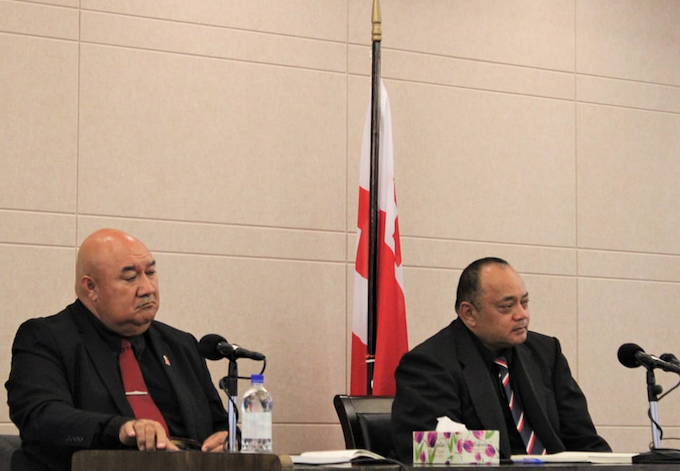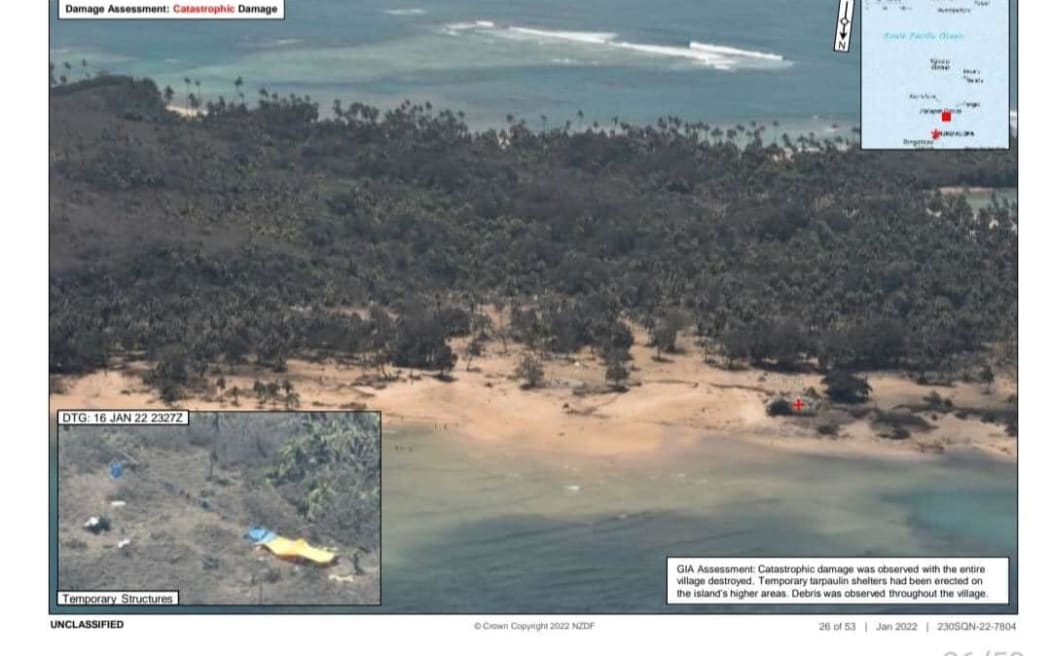By Finau Fonua
Ahead of the one-year anniversary of the catastrophic volcanic eruption tomorrow, Tongan Prime Minister Hu’akavameiliku Siaosi Sovaleni spoke to RNZ Pacific’s Finau Fonua.
Hu’akavameiliku shared his experiences of the eruption and its aftermath, as well as some of the challenges left in the wake of the disaster.
Hu’akavameiliku was at home on 15 January 2022 when the Hunga-Tonga-Hunga-Ha’apai volcano exploded with a destructive power the world had not seen since the Krakatoa eruption of 1883.
- LISTEN TO RNZ PACIFIC: Finau Finua reporting for Morning Report
- Other Tongan volcano and tsunami reports
Hu’akavameiliku was meeting with a local church community group when he heard what he had first thought was thunder. Within minutes he was notified of the volcano’s eruption.
Hu’akavameiliku recalls his first thoughts:
“It was scary. But at the same time, most of my time was just worrying about what’s happening, finding out what’s happening here, who’s affected, the scope of the problems and all that.
“But at the same time, we’re mindful that I’m there with my family, what will be the best course of action in terms of whether we are evacuating or staying home? But that’s what went through my mind.”
Communications cut off
For the next three days all communication services were down, and Tonga was effectively cut off from the world.
Hu’akavameiliku remembers sending people to determine the effects of the eruption in western Tonga, as well as boats to the islands who soon reported that tsunami waves were incoming.
It was later confirmed that three people had died in the disaster.
Although there was a need to determine exactly what had happened, that meant accessing satellite images of the eruption, which was not possible while communications were down.
Hu’akavameiliku explained how the priority remained with the affected people, both on Tongatapu and on the outlying islands.
“But those couple of days, it was more about finding out what’s happening and working out our response, making sure that families are safe, relocating some of the islands over down here. So that kept us busy, didn’t give us much time to worry about other stuff.”

Hu’akavameiliku expressed gratitude for the international assistance Tonga received in the wake of the disaster, particularly from New Zealand, Australia and its other Pacific neighbours. The food, drinking water and building materials received were vital for the survival of those most affected by the eruption.
Deserted islands
One year on from the cataclysmic eruption, the islands of Mango and ‘Atata are now deserted. Their populations have been completely evacuated and resettled in new communities, both on Tongatapu and ‘Eua.

Hu’akavameiliku said the decision to resettle the islanders was based on an understanding of how vulnerable their communities had become.
This relocation has been challenging for the people of Mango and ‘Atata: “Some of them are not used to where they are right now because they grew up in very small islands and now they are in Tongatapu or in ‘Eua, so helping them get hold of that and rebuilding their livelihood.
“The way they utilise will be different in the other islands than down here. So we are helping them. We adjust their way of life to the new environment they are in, that’s one of the biggest focuses, and on a higher level, the economics.
“We are reallocating some of the resources, we are just building not just houses but infrastructure.”
To mark the anniversary of the eruption an exhibition is being held. Hu’akavameiliku also noted that Tongans also reflected on the impact of the disaster through their strong spiritual communities.
“And, on the Sunday services, is to thank the Lord that we’re still here and to acknowledge our various partners. And we hope that things will keep getting better.”
Finau Fonua is an RNZ Pacific journalist. This article is republished under a community partnership agreement with RNZ.

